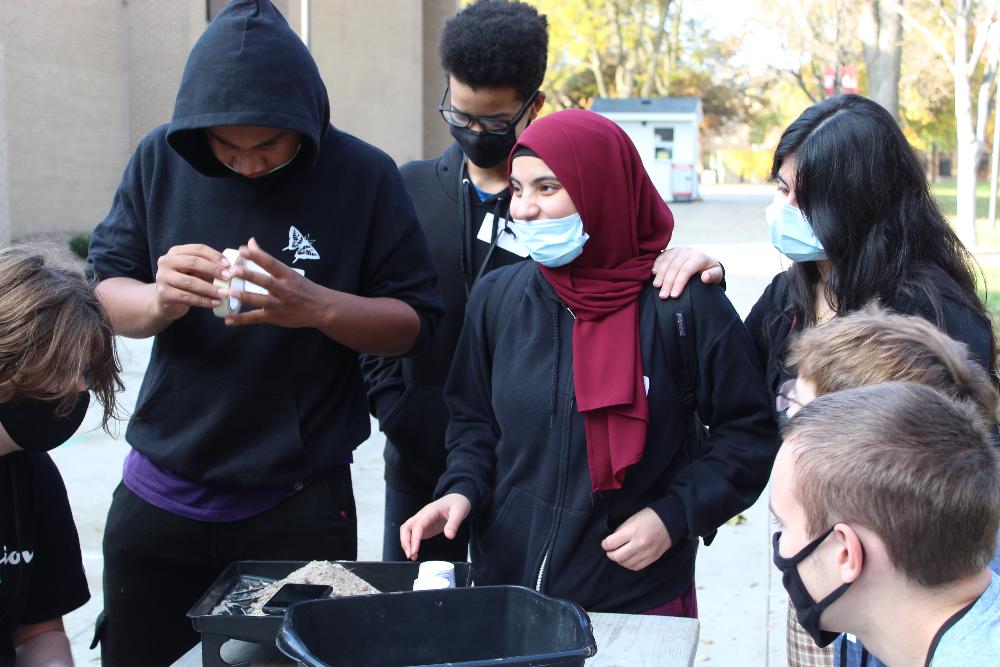Northeast students immersed in hands-on math and science through new program with UN-L
December 16, 2021
Over the course of a few days in November, roughly 700 Lincoln Northeast High School students visited the University of Nebraska–Lincoln’s East Campus, where their math and science classes took a hands-on turn. The students peered at insects crawling in flour, crafted their own irrigation systems and assembled DIY hydroponic kits, among other activities.
The Northeast ninth- and 10th-graders who visited East Campus are among the first students to take part in the LPS-CASNR (College of Agricultural Sciences and Natural Sciences) Early College and Career STEM Program. The program, which launched this year, is an innovative partnership between Lincoln Public Schools and the university’s College of Agricultural Sciences and Natural Resources. Through the program, ninth- and 10th-grade Northeast students learn concepts in the areas of food, energy, water and societal systems - collectively known as FEWS2 - through the school’s existing curriculums in all subject areas. Students in 11th and 12th grades will have the opportunity to explore pathways — including early college credit — that will help them pursue careers or higher education in FEWS2 fields. This is important in a state such as Nebraska, where one in four jobs is related to agriculture and natural resources.
“The vision is just to build a better future generation for Nebraska to take care of our state,” said Bailey Feit, CASNR/LPS focus program coordinator and a former LPS teacher. “The mission is a little more specific to the students, and it’s very much about their career opportunities and getting them to have ways to connect what they’re learning in the classroom into the outside world.”
The immersion event on East Campus aimed to further introduce students to FEWS2 concepts, as well as acquaint them with the students, where students who wish to pursue early college credit or a certificate have the opportunity to take classes and participate in other immersive activities as they move through the program.
During the November events, students practiced addressing challenges related to FEWS2. Each day was divided into four sessions involving irrigation, entomology, water dams and levees, hydroponic lunchboxes, and animals and food.
For some students, including Northeast 10th-grader Levi Eppens, the activities and discussion underscored how central agriculture is to Nebraska’s economy.
“I’ve learned that it’s pretty much the premise of Nebraska’s wealth and pretty much how we survive,” he said. “A lot of Nebraskans farm, and I know it’s super important to them to have so many innovations.”
Northeast teachers also attended the event and were able to see students connect the concepts they learned in the classroom and how they’re applied.
“It gets the students out into the real world, and they see hands-on activities that are engaging, real-life applications,” said Brett Shaw, a Northeast math teacher. “They’re able to actively do things that they can’t do in the classroom.”
To learn more about the program, visit https://eccsp.lps.org.
Published: December 16, 2021, Updated: February 23, 2022

